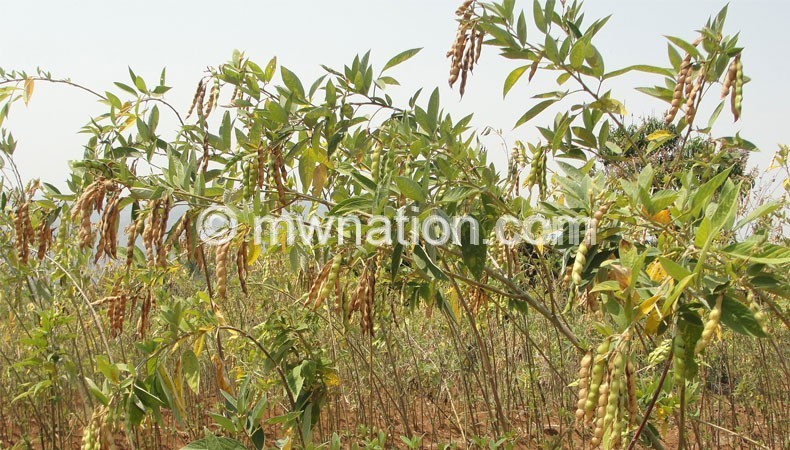Legume farmers cry foul over markets
The Legumes Development Trust has expressed concern over the lack of lucrative markets for legumes as large buyers are shunning buying due to Covid-19 travel restrictions that has affected export markets availability.
Legume Development Trust manager Sangwani Makoko in an interview on Wednesday said the problem has been compounded by the lack of resources at Admarc to buy legumes from farmers, as a result, most farmers are now selling cheaply to vendors below government set minimum prices.

Legume production was priotised by the government in the 2019/20 financial year with a financial injection of K1.8 billion which Makoko said raised hope that farmers could have a better season coupled with good rains in the season.
She said: “We had a lot of interest from farmers to grow more legumes and we also had great interest from buyers, traders and market platforms offering to buy more than previously.
“However these have been hit hard by Covid-19 and most large traders pulled out of the market at eleventh hour. This is because they have nowhere to store the produce as you know that when they buy the commodities, they do export immediately to international markets”.
She explained that farmers are being forced to store the commodities other than selling to vendors cheaply while those who need quick cash are forced to sell at a loss.
Makoko said the majority of legume farmers have returned from Admarc markets disappointed because Admarc was not capitalised to live up to farmers expectations.
“Pigeon peas farmers will be the most disappointed because they are just harvesting now and there are no markets,” she lamented.
She feared that the majority of legume growers will be hit by the post harvest losses as they do not know for how long they will hold on to the commodities amid poor storage facilities in the absence of ready markets.
In the current marketing season, Admarc acting chief executive officer Felix Jumbe said they planned to purchase the following tonnage of legumes; 16 620 beans, 50 000 soy beans, 15 000 groundnuts, 20 200 pigeon peas, 30 000 cotton and other general commodities 4 750.
“The purchase of these commodities needs government financial support and already, the government is supporting us through the national budget and authorisation to borrow from commercial banks,” said Jumbe.
Ministry of Agriculture and Food Security spokesperson Priscilla Mateyu said on Wednesday that the Ministry will make follow ups as to why the key buyers of legume produce have withdrawn.
She said: “But to our undestanding, the buyers do not only service the international market but the local market as well for production of different food stuffs”.
So far government set legume minimum prices are as follows per kilogram: Soya beans K300, pure beans K450, mixed beans K350, groundnuts (Shelled) K480, groundnuts (Unshelled) K300, pigeon peas K240, cowpeas K310, Chickpeas K320 among others.
Government has been encouraging production of legumes as means of agricultural diversification in a bid to improve economic well-being of farmers at the same time increasing agricultural export commodities for national export earnings.
First round crop estimates as released by the Ministry of Agriculture and Food Security states that legumes like groundnuts, soya, pigeon peas and beans has seen an increase in production of about 9.15 percent on average.





